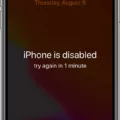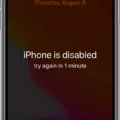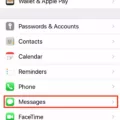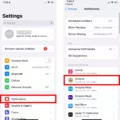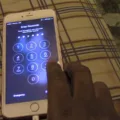Smartphones have become an integral part of our lives, serving as our personal assistants, entertainment hubs, and communication devices. However, the unfortunate reality is that these valuable gadgets are also prime targets for thieves. When a phone is stolen, it leaves us feeling vulnerable and violated, wondering what the thief will do with our personal information. This article aims to shed light on the subject, specifically focusing on the question: Can someone unlock my stolen phone?
Let’s start with iPhones. Apple has implemented stringent security measures to protect user data and prevent unauthorized access to their devices. If you have set a passcode or enabled biometric security features like Touch ID or Face ID, the thief would need to bypass these measures to gain access to your phone. However, it’s worth noting that there are professional iPhone unlocking tools available that can help individuals who have forgotten their passcodes. These tools are not limited to authorized personnel and can potentially be misused by thieves to unlock stolen iPhones.
Moving on to Android phones, the situation is slightly different. Android devices offer various security options, such as passcodes, patterns, PINs, and biometric features like fingerprint sensors or face recognition. If you have properly secured your Android phone, the thief will face significant obstacles in unlocking it. They may resort to switching off the device, removing the SIM card, and formatting it, making it difficult to track or trace. However, it’s important to remember that determined thieves may still find ways to unlock an Android phone, especially if it lacks proper security measures.
In both cases, the primary motivation for thieves is often financial gain. They may sell the stolen phone on the black market or to unsuspecting buyers, profiting from their illegal activities. Alternatively, thieves may attempt to access the data stored on the device to exploit it for their own benefit. This could involve unauthorized purchases using your linked credit cards, accessing your personal information, or even using it as leverage for blackmail.
To protect yourself from such scenarios, it is crucial to take preventive measures. Firstly, always secure your phone with a strong passcode or biometric security feature. Regularly back up your data and enable remote tracking and wiping options, such as Find My iPhone or Find My Device. These services can help you locate your stolen phone and remotely erase its data to safeguard your sensitive information.
While smartphones have enhanced our lives, they also pose risks if fallen into the wrong hands. Thieves may attempt to unlock stolen phones using various techniques, but with proper security measures in place, the chances of unauthorized access can be significantly reduced. Stay vigilant, secure your device, and take advantage of the available tools to protect your personal information from falling into the wrong hands.

Can People Unlock Stolen Phones?
It is possible for someone to unlock a stolen iPhone using professional iPhone unlocking tools. These specialized software tools are specifically designed to assist users who have forgotten their iPhone passcode and need to gain access to their locked device. However, it is important to note that unlocking a stolen phone is illegal and unethical.
Here are some key points to consider regarding unlocking stolen phones:
1. Illegal and unethical: Unlocking a stolen phone is against the law and goes against ethical principles. It is considered a criminal offense as it involves tampering with or bypassing security measures on a device that does not belong to the person attempting to unlock it.
2. Professional unlocking tools: There are various professional iPhone unlocking tools available in the market that claim to be able to unlock locked iPhones. These tools work by exploiting vulnerabilities or weaknesses in the iOS system to bypass the passcode or security measures.
3. Risks and consequences: Attempting to unlock a stolen phone can have severe consequences. It is illegal and can lead to criminal charges if caught. Additionally, using unauthorized unlocking tools can potentially compromise the security of the device and the personal data stored on it.
4. Legitimate unlocking methods: If you have a legitimate reason to unlock a locked iPhone, such as forgetting the passcode, there are official methods provided by Apple to regain access to the device. These methods include using iTunes or iCloud to restore the device, or contacting Apple support for assistance.
While it is technically possible to unlock a stolen iPhone using professional unlocking tools, it is illegal, unethical, and can have severe consequences. It is important to respect the law and the rights of others by not engaging in activities that involve stolen devices.
What Can Thieves Do with a Stolen Phone?
Thieves can engage in various activities with a stolen Android phone, depending on their intentions and level of expertise. Here are some possible actions they may take:
1. Sell the phone: Thieves can quickly sell stolen phones to make a quick profit. They may approach individuals or shady businesses that are willing to buy second-hand phones without asking too many questions. The stolen phone may be sold locally or in a different region or country, making it harder to track.
2. Use the phone themselves: In some cases, thieves may decide to keep the stolen phone for personal use. They may remove the SIM card and replace it with their own, effectively using the phone as if it were their own. This allows them to make calls, send messages, access the internet, and use various apps without being easily traceable.
3. Extract personal data: Thieves may try to access the data stored on the stolen phone. This can include personal information, such as contacts, photos, videos, documents, and even login credentials for various accounts. They can use this information for identity theft, blackmail, or to gain unauthorized access to the victim’s accounts.
4. Sell or use the parts: If the stolen phone cannot be sold as a whole, thieves may opt to dismantle it and sell individual parts. Valuable components like the display, camera, battery, or motherboard can be sold separately to repair shops or individuals looking to fix their own devices. Alternatively, the parts may be used to repair other stolen or damaged devices the thieves possess.
5. Engage in fraudulent activities: Thieves may exploit the stolen phone for fraudulent purposes. This can involve using the phone to make unauthorized purchases, sign up for services, or perform financial transactions using the victim’s accounts or payment methods. They may also use the stolen phone to send phishing messages or engage in other forms of digital fraud.
6. Use the phone as a tool for other crimes: Stolen phones can be used as tools in other criminal activities. Thieves may use the phone to communicate with accomplices, coordinate illegal activities, or plan and execute further thefts. They can also use the phone’s GPS capabilities to track movements or gather information about potential targets.
It is important to note that these are potential actions thieves can take with a stolen Android phone. However, the actual actions may vary depending on the thief’s knowledge, resources, and objectives.
Can Your Stolen Phone Be Accessed?
If your phone is stolen, there is a possibility that it can be accessed by unauthorized individuals. Despite having a phone passcode and biometric security features like fingerprint ID, hackers can still find ways to gain access to your device. Here are some ways in which thieves can exploit your stolen phone:
1. Unauthorized Purchases: If your phone is linked to your credit cards or payment services like Apple Pay or Google Pay, thieves can make unauthorized purchases using your stored payment information. This can result in financial loss and potential identity theft.
2. Access to Passwords and Login Information: Many people store their passwords and login information on their phones for convenience. If your stolen phone falls into the wrong hands, thieves can easily access this sensitive data and gain unauthorized entry into your various accounts, such as email, social media, banking, and other online platforms.
To protect yourself from these risks, it is important to take the following preventive measures:
– Set a Strong Passcode: Use a unique and strong passcode to secure your phone. Avoid using common patterns or easily guessable codes.
– Enable Biometric Security: Use biometric features like fingerprint ID or face recognition to add an extra layer of security to your device.
– Remote Lock and Erase: Enable the “Find My Phone” feature on your device, which allows you to remotely lock or erase your phone if it is lost or stolen. This can help protect your data from falling into the wrong hands.
– Use Two-Factor Authentication: Implement two-factor authentication for your important accounts. This adds an extra step of verification, usually through a text message or email, to ensure that only you can access your accounts.
– Regularly Update and Backup: Keep your phone’s software updated to the latest version, as updates often include security patches. Additionally, regularly backup your data to a secure location, such as cloud storage or a computer, to ensure you can retrieve it if your phone is lost or stolen.
By taking these precautions, you can minimize the risk of unauthorized access to your stolen phone and protect your personal information and financial assets.
Can Someone Else Unlock Your Phone?
It is possible for someone else to unlock your phone if it does not have any form of passcode or security measure in place. Without any protection, anyone who has physical access to your phone can easily access its contents and use it as they please.
However, if you have set up a passcode or passphrase on your phone, it significantly increases the security and makes it much more difficult for unauthorized individuals to gain access. For example, using a 6-digit passcode provides a reasonable level of security.
By setting up a passcode, you create a barrier that requires anyone attempting to unlock your phone to enter the correct sequence of numbers or characters. This helps protect your personal data, sensitive information, and privacy.
It is important to note that stronger passcodes, such as longer alphanumeric combinations or biometric authentication methods like fingerprints or facial recognition, offer even greater security. These measures make it significantly more challenging for others to unlock your phone without your explicit permission.
Without any security measures in place, someone else can easily unlock your phone. However, by implementing a passcode or other security features, you significantly enhance the security and restrict unauthorized access to your device and personal data.
Conclusion
It is important to be aware of the potential risks and consequences of having your phone stolen. Thieves can do a variety of things with stolen phones, whether it be an iPhone or an Android device. With an iPhone, thieves may attempt to unlock it using professional unlocking tools or exploit security vulnerabilities to gain access to your personal data. They can make unauthorized purchases, access passwords and login information, and even use your phone to threaten you. On the other hand, with an Android phone, thieves will typically switch it off, remove the SIM card, format it, and then resell it. However, there is still a risk of unauthorized access to your personal information if the thief manages to unlock the device. It is crucial to take proper security measures, such as setting a passcode or biometric authentication, to protect your phone and the data stored within it.






